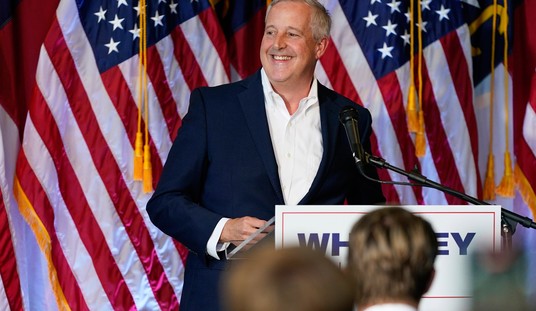There’s nothing that exemplifies the deleterious effects of government intervention into the private sector than the housing market. Bill Clinton’s National Homeownership Strategy did to the housing sector what Obamacare will do for the healthcare sector. His administration created entire offices and programs dedicated to forcing banks to underwrite risky mortgages under the dubious goal of universal home ownership. Concurrently, Fannie Mae and Freddie Mac bought up the lion’s share of the subprime mortgage securities and fueled the toxic asset bubble. The bubble popped, bringing down the entire economy with it.
Investor’s Business Daily explains it like this:
When bankers resisted being saddled with so many additional risky loans, Clinton tapped Fannie Mae and Freddie Mac to take them off their books, while freeing bankers to originate more of the political loans. He directed HUD to hike Fannie’s and Freddie’s goals for underwriting affordable loans, which remained in force throughout the 2000s.
When the mortgage giants pushed back, complaining it would be hard to meet the higher targets, Clinton pushed them to load up on subprime loans.
He also authorized Fannie and Freddie for the first time to buy subprime securities to earn credits against the HUD goals. The mortgage giants jumped at the chance, since it allowed them to meet the onerous new goals.
A 2005 HUD report attributed the explosion in subprime securities between 2001 and 2004 to HUD’s tougher goals, along with tougher CRA enforcement. Between 2004 and 2006, the mortgage giants bought $613 billion, or 20%, of the private-market securities created to meet their demand under HUD rules.
For good measure, Clinton late in his second term installed several of his cronies, including Franklin Raines, on the inside of Fannie and Freddie. They in turn bought loans from Countrywide and other subprime lenders, who signed “fair lending” contracts with HUD obligating them to meet lending quotas.
Thus the government created a feeding frenzy for subprime loans by putting Fannie and Freddie and private lenders in competition through quota systems enforced by HUD and Treasury.

If there is one thing that should be a rallying cry for Romney in this campaign, it is pinning the blame of the economic calamity on the Clinton/Obama housing policies (Obama is continuing all those policies), and pledging to wind down the failed GSEs. This is especially vital at a time when Obama, with the help of Clinton’s hubris, has successfully deflected blame for the economy and foisted it upon his predecessor.
To that end, the Romney campaign released a white paper on housing policy last Friday. Oddly, they chose to bury it amidst the news of him releasing his tax returns. However, after examining the white paper it’s not hard to comprehend why he chose to bury it. It says absolutely nothing.
Instead of a wholesale indictment of Obama’s coddling of Freddie and Fannie and his continuation of Clinton era “fair lending” and universal homeownership programs, Romney offers a few parsimonious jabs about the “lack of a clear vision” and “poorly administered programs.” He could have ripped Obama for his hand in class action suits against banks for so-called discriminatory lending practices while he was a community organizer in Chicago. He could have castigated Obama for continuing the juiced up goals of the Community Reinvestment Act that underwrote risky loans.
This is endemic of his entire campaign against Obama. It’s as if he is saying that Obama is a poor and apathetic manager instead of telling the American people that he is a malevolent purveyor of central-planning along with the very failed policies that have led to the housing disaster.
And what about Romney’s solution? Does he promise to wind down Fannie and Freddie? In what has become his pale-pastel trademark, Romney merely mentions his desire to “reform the GSEs” without ever explaining his plans for reform.
Folks, this is not how you win over Independent and swing voters.
None other than right-wing extremist, John McCain, has a bill (S.693/H.R 1182) that will shut down the GSEs, albeit in a gradual way and with the understanding that they currently back 90% of all mortgages. His bill would impose a two-year limit on the current conservatorship and chart a course to complete privatization after 5 years. It would immediately end all affordable housing mandates, force the GSEs to pay back the taxpayer bailout money, cap their maximum portfolio size, reduce their market share and shrink their competitive advantage over private capital.
As Governor Scott Walker said this week, Romney needs to step up his game by showing some fire in the belly. He must convey a genuine sense of outrage over specific Obama policies that have destroyed specific sectors of the economy. He must then offer his specific free market solutions and take that ideological contrast straight to the voters. The strategy of complaining about the general direction of the economy and saying that Obama is in over his head is obviously not working.
A robust assault on housing policy would be a great start. Housing policy might not sound like a momentous issue, but it was the catalyst of the Great Recession. The blood of the entire housing and financial meltdown is on the hands of those who subscribe to Obama’s housing policies. It’s time someone nail them on it.
Cross-posted from The Madison Project













Join the conversation as a VIP Member